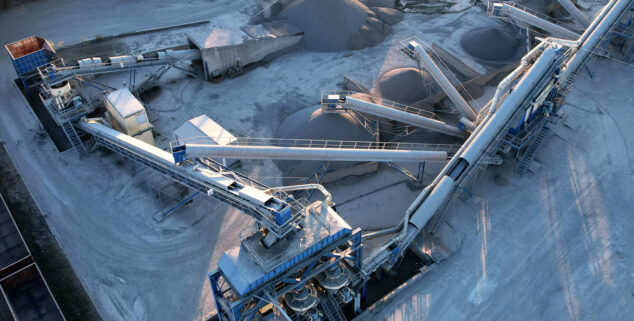Opinion
Pass the heat recovery law to decarbonize cement production
 Cement plant and ready mix concrete. Image by Maksim Safaniuk
Cement plant and ready mix concrete. Image by Maksim SafaniukOPINION – Two years ago, Gov. Newsom introduced an ambitious, first-of-its-kind plan to decarbonize the Californian economy by 2045 – no mean feat for any economy, let alone the fourth largest in the world.
Two years in, we are already feeling the heat. We now have 20 years to hit our target, and we need to squeeze the most out of every day we have left if we are to meet this goal.
This is crucial for California’s cement manufacturers, and while the industry has a plan to reach carbon neutrality by 2045, they cannot do it alone. Carbon neutrality requires buy-in from every interested party to achieve this goal for an industry that is difficult to decarbonize.
A crucial partner is the state government – and a bill that can help the cement industry cut emissions, improve energy efficiency, and take a strong step forward to meeting the 2045 deadline is currently making its way through the legislature.
The bill, AB 2109 – which would further the state’s progress in decarbonizing manufacturing by making industrial process heat recovery cost effective – whereby cement plants can invest in and deploy technologies that capture the heat emitted during the manufacturing process and use it to create their own power that is self-generated, off-grid, and carbon-free.
What is stopping them from doing this today is a requirement that companies who self-generate power using waste heat continue to pay their utility a departing load charge – essentially, paying the utility to not use their electricity.
AB 2109, introduced by Assemblymember Juan Carrillo, would exempt cement manufacturers from having to pay those charges.
This is a win-win-win for all concerned. The cement industry can reduce emissions while maintaining production, NGOs can cheer the emissions reductions, and utilities have more capacity to share with other customers relieving the strain on the state’s electrical grid.
In the race to reach net zero, we have been encouraged by the cooperation with policymakers, regulators, academia, and the NGOs. There has been a recognition of a need to work together like we did on SB 596, which directed CARB to create a strategy to decarbonize the cement industry.
We have seen the same commitment to cooperation on this bill. All that remains is to send it to the Governor’s desk.
Passing this bill is important for all stakeholders. There are no more “off years” in the drive to reach net zero by 2045, and we need to pull every lever we have at our disposal to make this happen.
The state has made the call to decarbonize, and the industry is working hard to respond. Besides deploying industrial process heat recovery technologies, cement manufacturers are exploring a variety of approved strategies to lower emissions while maintaining a robust industry in California.
They are also producing lower-carbon blended cements such as portland limestone cement (PLC), which can reduce carbon emissions by as much as 10 percent. PLC has been used in California for a wide range of building types, including structures like dormitories, labs, parking garages, and core infrastructure projects.
These kinds of innovations are a strong start, but they are also low-hanging fruit in the context of what more needs to be done. We are entering a new stage of complexity when it comes to further reducing emissions – one that requires coordination and commitment among multiple stakeholders, just as much as it requires new technologies.
Ultimately, cement and concrete in our state must continue to be available at scale. It is vital for every aspect of our built environment, and as our weather becomes more extreme, it is critical to keep producing a resilient and durable material like concrete to future-proof our communities.
But we should also do this sustainably. The cement industry is keen to make those changes to reach net zero, and AB 2109 would be a strong step forward in making that happen.
Tom Tietz is the Executive Director of the California Nevada Cement Association, a not-for-profit organization committed to developing sustainable and economical construction solutions for California and Nevada with an emphasis on the use of cement and concrete.
Want to see more stories like this? Sign up for The Roundup, the free daily newsletter about California politics from the editors of Capitol Weekly. Stay up to date on the news you need to know.
Sign up below, then look for a confirmation email in your inbox.

Leave a Reply